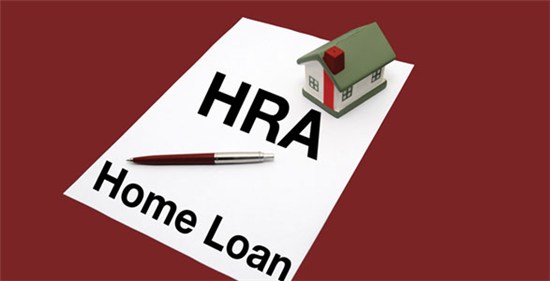 Over a period of time, we have received numerous queries from taxpayers embracing varied topics in the income tax lexicon. However, if we were to choose any one issue that comes up most frequently, it would be that of House Rent Allowance (HRA) and its co-existence with tax deduction on home loans. Among all income tax doubts that arise in general, the issue of HRA going hand in hand with housing loan deductions seems to vex employees the most.
Over a period of time, we have received numerous queries from taxpayers embracing varied topics in the income tax lexicon. However, if we were to choose any one issue that comes up most frequently, it would be that of House Rent Allowance (HRA) and its co-existence with tax deduction on home loans. Among all income tax doubts that arise in general, the issue of HRA going hand in hand with housing loan deductions seems to vex employees the most.
R S Kamat asked, “His firm doesn’t allow both deductions simultaneously, so could he have the specific section number of the Income Tax Act (ITA) that allows this?” Well, I am afraid that isn’t possible since in income tax language silence signifies approval. In other words, the ITA need not expressly allow something– lack of express disallowance also signifies intention of approval. HRA is dealt with by Sec. 10(13A) read with rule 2A and interest on housing loan is deductible under Sec. 24. Nowhere, does it say either in Sec. 10(13A) or in Sec. 24 that the two are mutually exclusive. There are many examples to discuss on this concept. Let’s take for instance Sec. 80C (PPF, NSC, ELSS etc.) and Sec. 80D (medical insurance premium). Everyone will agree that both Sec. 80C and Sec. 80D can be separately claimed. But does it expressly say so anywhere?
Sec. 80GG dealing with deduction on rent paid where the taxpayer doesn’t receive HRA, specifically mentions that the taxpayer, his or her spouse / minor children should not own any residential accommodation where the taxpayer resides, performs the duties of his office or employment or carries out his business or profession
On the other hand, Sec. 80GG dealing with deduction on rent paid where the taxpayer doesn’t receive HRA, specifically mentions that the taxpayer, his or her spouse / minor children should not own any residential accommodation where the taxpayer resides, performs the duties of his office or employment or carries out his business or profession. The section goes on to further add that if the taxpayer owns accommodation at a place other than that mentioned above, the tax deduction in respect of self occupied property (annual value to be taken as nil) should not be claimed by him. This is express denial. No such provisions exist in respect of HRA.
Senthil has a good question. He says, “That the deduction of HRA going hand in hand with that on self occupied property seems paradoxical as an employee staying in a rented house, by definition, cannot live in a self occupied property”. In other words, a person cannot be at two places on one time or how can a property be self occupied when the occupant is actually occupying another rented property? To resolve this dilemma, we need to examine Sec. 23(2) of the ITA.
Some correspondence has written in asking whether rent may be paid to a parent where the property is jointly owned by the taxpayer and the parent. Such a transaction though theoretically feasible, will be in form and substance assumed to be meant as a tax evasion mechanism and hence not advisable
As per this section, the term “self occupied property” includes property that cannot be occupied by the owner owing to his employment, business or profession carried on at any other place in a building not belonging to him. In other words, it is not necessary that you have to be occupying or staying in the property, rather, the property should be meant for your occupation.
Narayanan , on the other hand stays with his parents in a house belonging to his father. He asks, “That since having to pay rent is a pre-requisite for the HRA deduction, can he pay rent to his father and claim the deduction?” Yes, this can be done. However, the rent paid by Narayanan will be added to his father’s income and taxed in his hands. Also, Narayanan will have to furnish rent receipts to his employer as proof of having paid rent. Note that this arrangement however cannot be carried out in the case of the spouse. Married couples sometimes buy the house in any one person’s name. In this case, the other spouse cannot get away paying rent to the owner spouse, as husband and wife cannot have a commercial relationship with each other. On similar lines, some correspondence has written in asking whether rent may be paid to a parent where the property is jointly owned by the taxpayer and the parent. Such a transaction though theoretically feasible, will be in form and substance assumed to be meant as a tax evasion mechanism and hence not advisable.
Lastly, there does exist a related provision that is less commonly known and also hitherto not been discussed. However, this has not so much to do with HRA and the deduction on interest on home loans as it has with regards to the system of taxation of self occupied property. Readers would know that the annual value of one self-occupied property is taken to be nil and the interest deductible there under, is capped at Rs. 2 lakhs. Also as discussed above, such property need not actually be occupied by the owner, rather it should be meant for self occupation. However, this inability to occupy the property should arise by reason of the fact the employment or business or profession is carried out at some other place. So suppose Vikram, a taxpayer, owns a house but continues to reside with his parents who live in the same neighbourhood.
 In other words, Vikram’s own house is vacant not out of any professional or business compulsion but out of his choice and personal convenience. In such a case, the annual value of the self occupied house will not be taken as nil, instead it will be deemed to be let out and the notional rent will be brought to tax. Consequently, the full amount of the interest on housing loan will be tax deductible without any cap. Needless to add, if Vikram were to pay rent to his parents, the HRA deduction will continue to apply.
In other words, Vikram’s own house is vacant not out of any professional or business compulsion but out of his choice and personal convenience. In such a case, the annual value of the self occupied house will not be taken as nil, instead it will be deemed to be let out and the notional rent will be brought to tax. Consequently, the full amount of the interest on housing loan will be tax deductible without any cap. Needless to add, if Vikram were to pay rent to his parents, the HRA deduction will continue to apply.